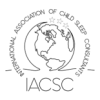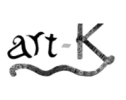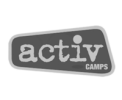Key Details
-
Price: £2,700
-
Course Length: 18 months
-
Course Delivery: On Demand eLearning
-
Guided Learning Hours: 864 (including 300 work/placement hours)
-
Accredited by: NCFE Level 3
This qualification, NCFE CACHE Level 3 Diploma for Working in the Early Years Sector, approved by the Department for Education (DfE), is designed to meet the Level 3 Early Years Educator (EYE) criteria within the Early Years Foundation Stage (EYFS) statutory framework. Tailored for learners preparing to become early years educators, it equips them with the essential knowledge, skills, and understanding to work with children from birth to five years, and includes foundational knowledge of children aged five to seven years. Learners who achieve this qualification meet the DfE’s EYE criteria and are eligible to be counted within EYFS staff-to-child ratios at Level 3.
Designed for individuals who are working, this intensive programme provides guided online learning throughout the academic year and includes flexible mentoring and assessment arrangements to accommodate diverse schedules.
Graduates benefit from a wide range of career opportunities, such as positions in crèches, nurseries, reception classes in schools, and pre-school centres. With this qualification, learners can also progress to become independent practitioners, specialise in specific areas, or move into leadership and management roles within the sector.
This qualification can also be pursued as an apprenticeship, allowing learners to work within a placement while studying simultaneously.
Course Structure
This unit explores the role and responsibilities of the reflective early years educator whilst appreciating the knowledge, skills and behaviours required for effective engagement within own role.
This unit explores holistic development and key milestones for babies and children, including the significance of experience and personal circumstance.
This unit explores legislation and guidance to support the increasing awareness and confidence of the early years educator to support babies, children and their families when facilitating nurturing environments for babies and children with special educational needs and disabilities (SEND).
This unit explores the significance of communication for learning and holistic development in all babies and children.
This unit explores how the early years educator safeguards children, including wider aspects of child protection, reporting and record keeping. There are opportunities to consider sustainability and sustainable development goals 2 and 6 when exploring the welfare requirements.
This unit explores the relationship between legislation, policy and procedure, with further focus on own role and responsibilities with regard to the health, wellbeing and safety of babies and children.
This unit explores the early years statutory framework offered through the early years foundation stage (EYFS) and the implications for embedding effective characteristics of teaching and learning for all children.
This unit explores the assessment opportunities applied by early years educators to ensure the unique needs of each baby and child are understood and valued.
This unit explores the knowledge, understanding and skills needed to be able to plan, lead and review play experiences that support babies’ and children’s learning and development whilst fostering a positive approach to sustainability.
This unit explores partnership working, including benefits, challenges and complexities of professional collaboration.
Further Details
Tuition fees for our NCFE CACHE Level 3 Diploma for Working in the Early Years Sector
(Early Years Educator) are £2,700 which includes an up front £300 registration fee, payable upon acceptance of a place with us.
We also offer a monthly instalment plan: £300 registration fee followed by 12 monthly payments of £210.
Applicants must be at least 18 years old and able to engage in either paid or voluntary employment within a home environment or an early years setting. The total number of mandatory work placement hours is a minimum of 300 hours; however, it is recommended that learners aim for 350 hours where possible to enhance their practical experience. Note that to work as an Early Years Educator and be part of the staffing ratios it is necessary to hold either GCSEs or Functional Skills Level 2 in English. If you completed your studies in English abroad at the age of 16, you could apply for a statement of comparability at ECCTIS. However, if English was your secondary language, it is likely that you will be required to complete Functional Skills Level 2 or GCSE in English.
Assessment is the process of evaluating a learner’s skills, knowledge, and understanding against the established standards of the qualification. This qualification undergoes both internal assessment and external quality assurance.
Assessment is centred around the following:
- Portfolio of Evidence: Learners are required to compile a contextualised portfolio that includes comprehensive written evidence demonstrating their skills and knowledge in practice. This portfolio will be assessed by an assessor and is subject to external quality assurance by NCFE to ensure compliance with all standards.
The assessment of the skills-based criteria will utilise a variety of methods, including:
- Direct Observations: Learners will be directly observed in their work placements or employment settings, which is essential for demonstrating practical skills.
- Professional Discussions: Learners will engage in discussions that allow them to express their understanding and insights in a professional context.
- Reflective Accounts: Reflective accounts from learners will detail their experiences, providing insight into their personal development and learning journey.
- Expert Witness Testimonies: When direct observation isn’t suitable, testimonies from a lead practitioner may be used, accompanied by professional discussions to corroborate the evidence.
- Work Products: Learners can submit relevant documents such as policies, reports, and records, which can serve to enhance or support professional discussions, providing tangible proof of their skills and knowledge.
Completing this course has transformed my career. Not only did I gain a nationally recognised qualification, but I also gained the skills to make a real difference in children’s lives. The assessments were challenging, but the support from my assessor was invaluable. I’m now considering studying Level 5.
The flexibility of online learning was an absolute game-changer! I could juggle my job and family while studying, which made a huge difference. The assessor was amazing—really supportive, patient and genuinely wanting me to succeed.
Do you still have questions?













